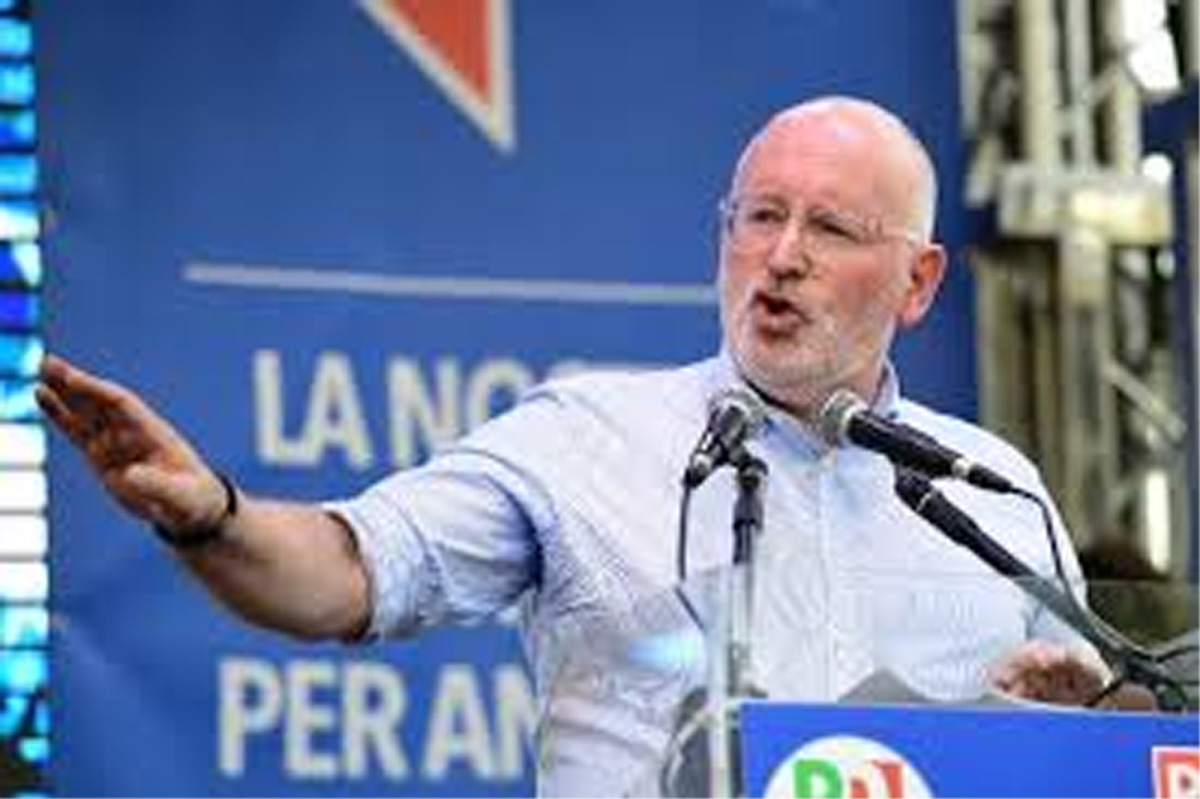THE HAGUE, May 28: Frans Timmermans, a contender for Europe’s top job, is a polyglot former diplomat with a driving ambition to reach the top in Brussels in order to promote the continent on the world stage.
Grandson to a Catholic family of southern Dutch miners and son to a minor diplomat, the 58-year-old Labour politician spent most of his life outside the Netherlands before becoming its foreign minister and then leaving for the EU in 2014.
Born in Maastricht, the southern city that in 1992 gave its name to the treaty creating the European Union, he went to an English school in Rome and later studied French literature and European law as a postgraduate at France’s Nancy University.
He speaks at least six languages including English, French, German and Italian and reportedly Russian.
European Commission chief Jean-Claude Juncker appointed the articulate Timmermans as his first-vice-president four years ago, saying: “I am the president, but I have delegated a large part of my prerogatives to the vice, Frans Timmermans.” Initially described as being the one who would take on much of the day-to-day management of the Commission, Juncker’s tightly organised operation under powerful secretary-general Martin Selmayr kept Timmermans’ hands off the levers of power.
Timmermans soon morphed into one of Juncker’s main enforcers, especially in the EU’s confrontation with Poland and Hungary over the rule of law.
He visited Warsaw in a bid to talk around the right-wing government to stop its controversial reforms to the court system, which the EU said were undemocratic.
When that failed, he was not afraid to push through the start of an EU disciplinary process against them.
Timmermans notably grew a beard during this period.
“Next to Michel Barnier, the (Brexit) negotiator, we needed an attack dog in the EU to talk about the positives of the Union,” said political analyst Andre Krouwel.
“That someone is Frans,” Krouwel said.
“I think he is a very skillful politician in every possible way. He’s got very good debating skills,” Amy Verdun, European politics professor at Leiden University told AFP.
The Dutchman has cultivated a friendly “man of the people” public demeanour — an avid football fan, Timmermans was on the board of directors of first division Roda JC football club until 2012.
But Timmermans, a father of four, is known in private as more reserved.
He has seen his own share of hardships and in 2002 came out as being a sexual abuse victim as a boy — last week calling for “no impunity” for priests who sexually abused children.
He has been described as a hard-charging and ambitious politician who drives his staff and is not afraid to call up journalists when he feels coverage of him is unfair.
“Either you like him or you don’t,” former Labour (PvdA) party MP Lutz Jacobi told the popular daily tabloid De Telegraaf over the weekend.
“The goes within his own Labour party as well,” Jacobi added.
Timmermans would also have to win the backing of Prime Minister Mark Rutte, a Liberal.
But whatever feelings about Timmermans, Dutch newspapers agreed his presence was one of the main reasons for Labour’s excellent performance in the European elections.
Dutch newspapers refer to the “Timmermans effect” in describing Labour’s six-seat haul in the European Parliament, ahead of Rutte’s ruling VVD and the upstart populist Forum for Democracy.
“He ran an excellent campaign and was attacked from all sides, both from the extreme left and the right,” said Krouwel, who analyses political parties across Europe. “That worked in his favour.” Timmermans himself has in the past argued for a more focused EU, saying in a recent interview: “I want Europe to go forward, not backward.”
“Timmermans wants to be the face of Europe, no doubts about it. He’s very ambitious and he is this close,” said Krouwel.
“His opportunity is now.” (AGENCIES)
&&&


